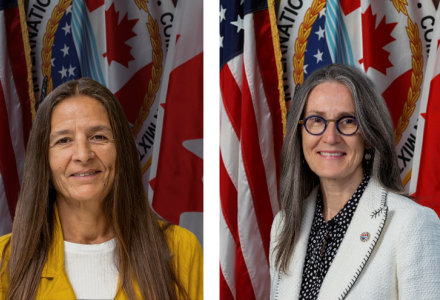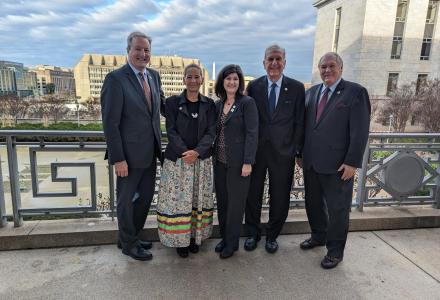
The Lake Champlain-Richelieu River flood study is in its final stretch.
The International Joint Commission (IJC) held four public hearings on the study in September and a comment period that ran into October; both yielded largely supportive comments about the study board’s findings and recommendations.
While the public meetings were lightly attended, those who sat in learned about the International Lake Champlain-Richelieu River Study Board’s recommendations to the IJC and had the opportunity to weigh in for themselves.
The preliminary board recommendations include:
- Installing a submerged weir and removing old eel traps and other impediments in the Richelieu River
- Restoring and protecting wetlands to mitigate localized flooding problems
- Better sharing of modeling and forecast tools between agencies and levels of government, including for climate change
- Exploring updated flood risk maps and updating flood plain usage guidelines, which would include exploring changes to the flood insurance system in the basin.
The IJC is still finalizing what formal recommendations will be made to the Canadian and United States governments.
The first in-person hearing took place on September 7 in Saint-Jean-sur-Richelieu, Quebec. Attendees, including representatives from the Association des citoyens de la plaine inondable, shared their views about what the IJC could do to ensure that governments implement the IJC’s final recommendations. They also expressed interest in seeing resources set aside to assist with erosion management and wetland restoration, as well as concerns about recommendations for flood insurance requirements for properties in the flood plain.
The next day, IJC Commissioners hosted the second in-person public hearing in Burlington, Vermont. Attendees representing the Lake Champlain Basin Program and US Sen. Patrick Leahy’s office said they were enthused about the study’s cautious work process and findings, and echoed a desire to see federal, provincial and state governments play a role in implementing recommendations made by the IJC and study board.
The following week, the IJC held two virtual public hearings: an English-language hearing on September 14 and a French-language hearing on September 15. Attendees asked questions about how the study board arrived at conclusions regarding the practical limits of adding new wetlands to reduce flood damages, the impacts of increasing water flows at Saint-Jean-sur-Richelieu, recommendations related to flood insurance, and water flow modeling for the lake and river system.
The IJC also received public comments by email and via its website. Individuals, non-governmental-organizations and Indigenous nations expressed views on the problems of high and low water levels on Lake Champlain, development along the waterfront and in flood plains, and threats to Indigenous archaeological heritage sites and cultural practices.
The IJC will review and reflect on all of the comments collected as it prepares final recommendations to the governments in late December. From there, the governments will deliberate and decide how best to implement the recommendations that are accepted by both countries.
A final report and highlights report are available on the Lake Champlain-Richelieu River Study Board’s website.

Public comments from the hearing in Burlington, Vermont. Study members and IJC staff and Commissioners who could not attend in person dialed in remotely to participate. Credit: IJC

Kevin Bunch is a writer-communications specialist at the IJC’s US Section office in Washington, D.C.




